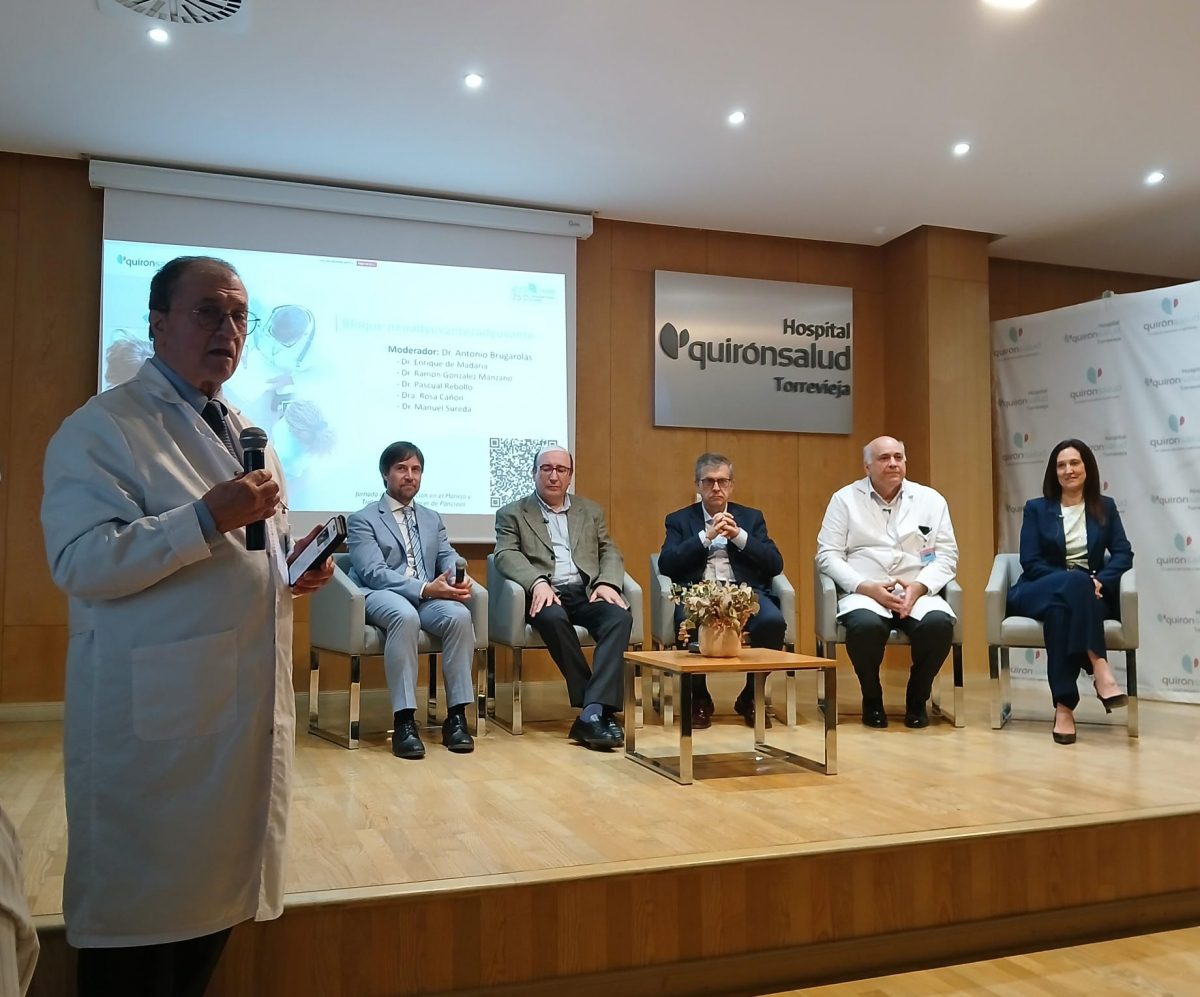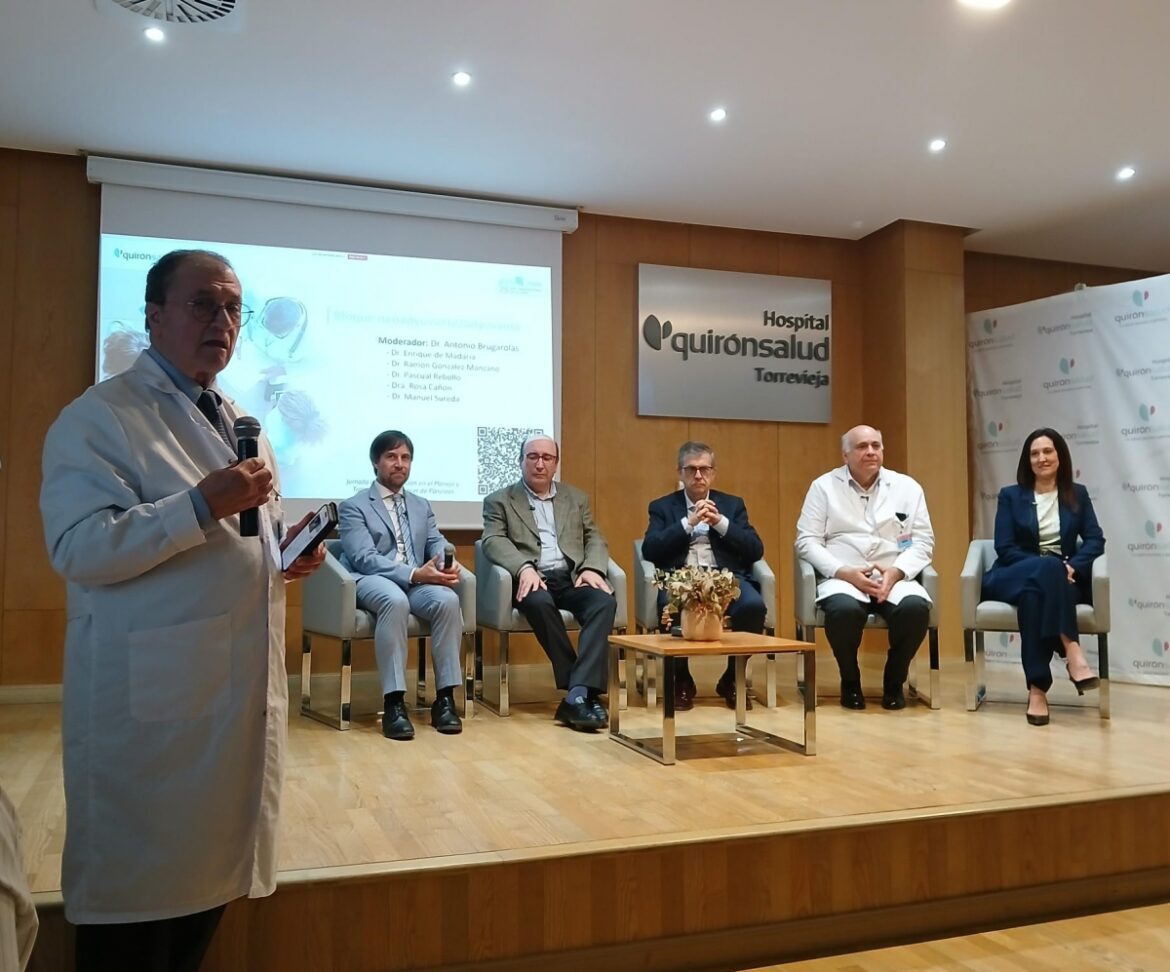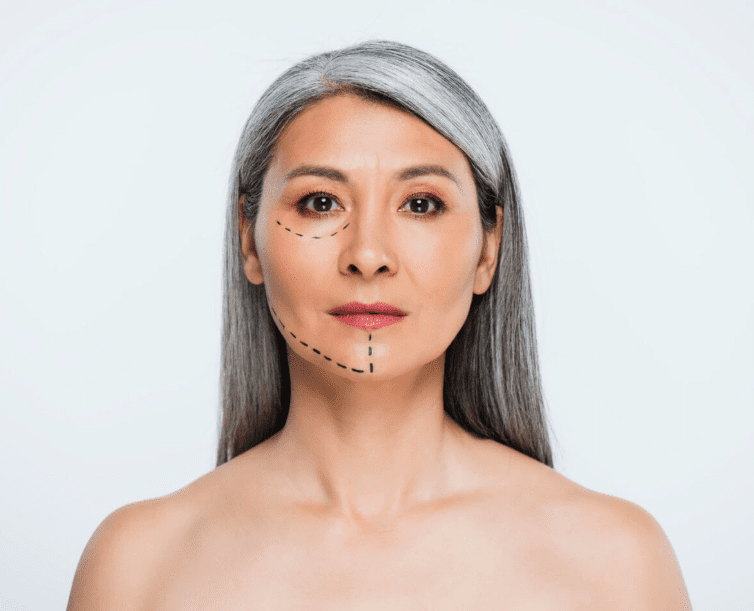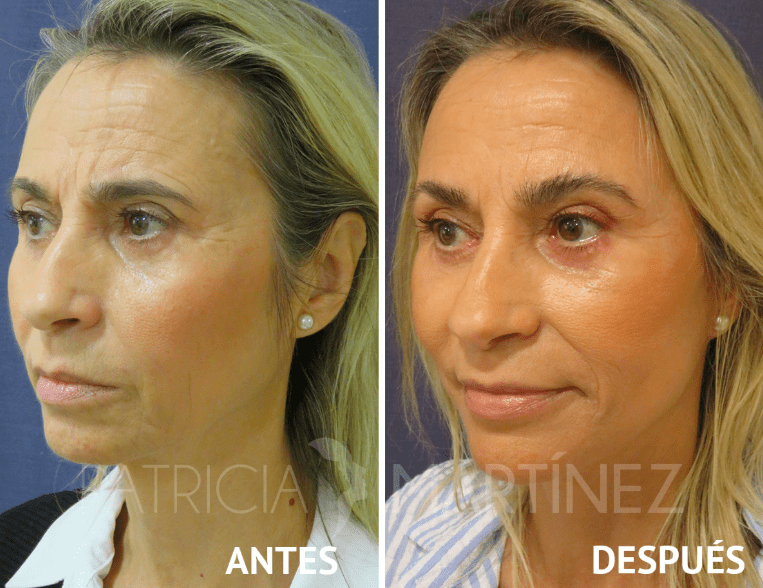-
 play_arrow
play_arrow
BayRadio Listen Live Broadcasting in Spain
Robotic Surgery, Immunotherapy and Comprehensive Care Take Centre Stage at Pancreatic Cancer Conference at Quirónsalud Torrevieja

Quirónsalud Torrevieja Hospital hosted over 100 medical experts from across the Valencian Community to explore the latest advances in the treatment of pancreatic cancer.
Last Thursday, Quirónsalud Torrevieja Hospital held the scientific event titled “Update on the Management and Treatment of Pancreatic Cancer”, attended by more than one hundred healthcare professionals from various locations throughout the Valencian Community.
The event served as a key platform for updating clinical knowledge and exchanging experiences regarding one of the most complex oncological diseases, with the aim of enhancing the multidisciplinary approach to pancreatic cancer.
The conference was structured into three themed sessions followed by a round table featuring interactive clinical case discussions. It brought together top-tier specialists in fields such as surgery, medical and radiation oncology, diagnostic imaging, gastroenterology, nutrition, anaesthesiology, and mental health, representing renowned centres such as the Valencian Institute of Oncology, Dr Balmis General Hospital in Alicante, Clínico Universitario Hospital of Valencia, Quirónsalud Valencia, and Quirónsalud Torrevieja itself.
The opening address was delivered by Dr Carlos Yago, Medical Director of Quirónsalud Torrevieja Hospital, who highlighted “the importance of creating spaces for professional exchange, where updated knowledge can be shared, clinical coordination can be strengthened, and innovative care approaches for highly complex diseases such as pancreatic cancer can be consolidated.”
Diagnosis and Surgical Treatment of Pancreatic Cancer
The first session focused on diagnosis and surgical treatment, with contributions from leading specialists including Dr Guzmán Lopardo (radiologist, Quirónsalud Torrevieja), Dr Fernando Martínez (gastroenterologist, Quirónsalud Valencia), Darío García Calderón (CEO, Cella), Dr José Manuel Ramia (surgeon, Dr Balmis General Hospital, Alicante), and Dr Pedro Bretcha, Head of Surgical Oncology at Quirónsalud Torrevieja, who also chaired the session.
Discussions centred on cutting-edge advances in surgical practice, particularly robotic surgery and the use of 3D virtual models that enable more precise and individualised surgical planning.
Speakers emphasised the importance of high-resolution CT imaging to assess surgical eligibility with curative intent, as well as the role of endoscopic ultrasound and biopsy for genetic tumour profiling. The benefits of using 3D models to tailor surgical strategies to each patient were also examined.
From a surgical standpoint, the panel stressed the need to apply radical oncological resection criteria to improve outcomes in curative surgery.
“Pancreatic surgery is undergoing a technological transformation. Robotic approaches not only enhance precision but also allow us to perform more complex resections with greater patient safety,” said Dr Bretcha.
The future of robotic surgery was explored as it continues to position itself as a key ally in the surgical treatment of pancreatic cancer.
Neoadjuvant and Adjuvant Treatment
The second session focused on neoadjuvant and adjuvant treatments, chaired by Dr Antonio Brugarolas, Head of the Oncology Platform at Quirónsalud Torrevieja. The panel included experts such as Dr Enrique de Madaria(gastroenterologist), Dr Ramón González Manzano, Dr Pascual Rebollo, Dr Manuel Sureda (oncologists at Quirónsalud Torrevieja), and Dr Rosa Cañón, Head of Radiation Oncology at the same centre.
All panellists agreed that precision oncology, together with the gradual incorporation of emerging therapies such as immunotherapy, is shaping a more personalised, molecularly guided approach to pancreatic cancer.
Key topics included risk factors, the management of premalignant lesions, and updates on molecular biology, genomics, and transcriptomics. The session also reviewed the indications for radiotherapy at various tumour stages, including metastatic disease, and discussed the immunological basis for ongoing immunotherapy trials.
In the area of neoadjuvant chemotherapy, the latest protocols aimed at enhancing tumour response prior to surgery were presented.
“The current challenge in treating pancreatic cancer is precisely selecting the most effective therapies for each patient. Thanks to precision medicine and the development of new biomarkers, we are now closer than ever to achieving personalised treatments that significantly improve outcomes,” stated Dr Rosa Cañón.
Clinical Management of Real-World Patient Challenges
The third session addressed the clinical management of the real-life challenges faced by pancreatic cancer patients. Moderated by Dr Enrique de Madaria, the panel featured key professionals including Dr Pablo Pabón (anaesthetist, Quirónsalud Torrevieja), Dr Vicente Sanchiz (gastroenterologist, Quirónsalud Valencia), Dr Guzmán Lopardo(radiologist, Quirónsalud Torrevieja), Dr Pilar Hernández (nutritionist), and Dr Nuria Javaloyes (psychologist), all from Quirónsalud Torrevieja.
The panel collectively emphasised the need for comprehensive care that goes beyond oncological treatment and includes pain management, nutritional support, cutting-edge endoscopic and radiological interventions, and emotional and psychological support.
Minimally invasive endoscopic and radiological techniques now allow for more effective and less traumatic management of complications related to pancreatic cancer. The session also reinforced the value of a truly multidisciplinary approach, uniting diverse expertise to improve patients’ quality of life.
“Pancreatic cancer not only demands complex medical treatments but also a humane and holistic perspective on the patient. Integrating nutrition, pain relief, and emotional support into the care plan is just as important as chemotherapy or surgery,” said Dr de Madaria.
Interactive Clinical Case Review and Closing Remarks
The conference concluded with a live, interactive roundtable featuring two real clinical cases. Using a digital platform, attendees actively participated in the decision-making process, enriching the clinical discussion and strengthening cross-disciplinary collaboration.
Dr Ana Segura, Vice President of the Official College of Physicians of Alicante, delivered the closing address, congratulating Quirónsalud Torrevieja on the scientific excellence and organisational quality of the event.
The conference was part of the 25th anniversary celebrations of Quirónsalud Torrevieja Hospital and was organised by the centre itself, with scientific endorsement from the Official College of Physicians of Alicante and support from the Spanish Society of Surgical Oncology (SEOQ).
Written by: Lily
Recent Posts
- Facial sculpture – the ultimate facelift
- Xcel Energía becomes Alicante’s “most active solar installer” in 2025
- Why does our cervicofacial lifting technique achieve a natural result?
- How Quirónsalud Torrevieja Hospital Has Positioned Itself at the Forefront of Advanced Traumatology
- Therapeutic advances usher in a new era in the fight against pancreatic cancer

Ctra. Cabo La Nao, CC La Nao, Local 6 03730 Javea, Alicante, Spain
Advertise with us
Do you have a business in Spain? Do you provide a service to the expat community in Spain? Would you like your message to reach over 500.000 people on a weekly basis?
BayRadio is a community orientated radio station offering fantastic content to our many listeners and followers across our various platforms. Contact us now and find out what Bay can do for you!
Our business is helping your business grow.
BAY RADIO S.L. © 2024. ALL RIGHTS RESERVED. WEB DESIGN BY MEDIANIC









Post comments (0)